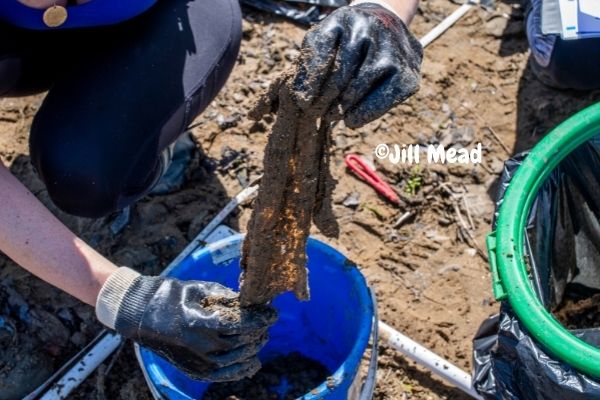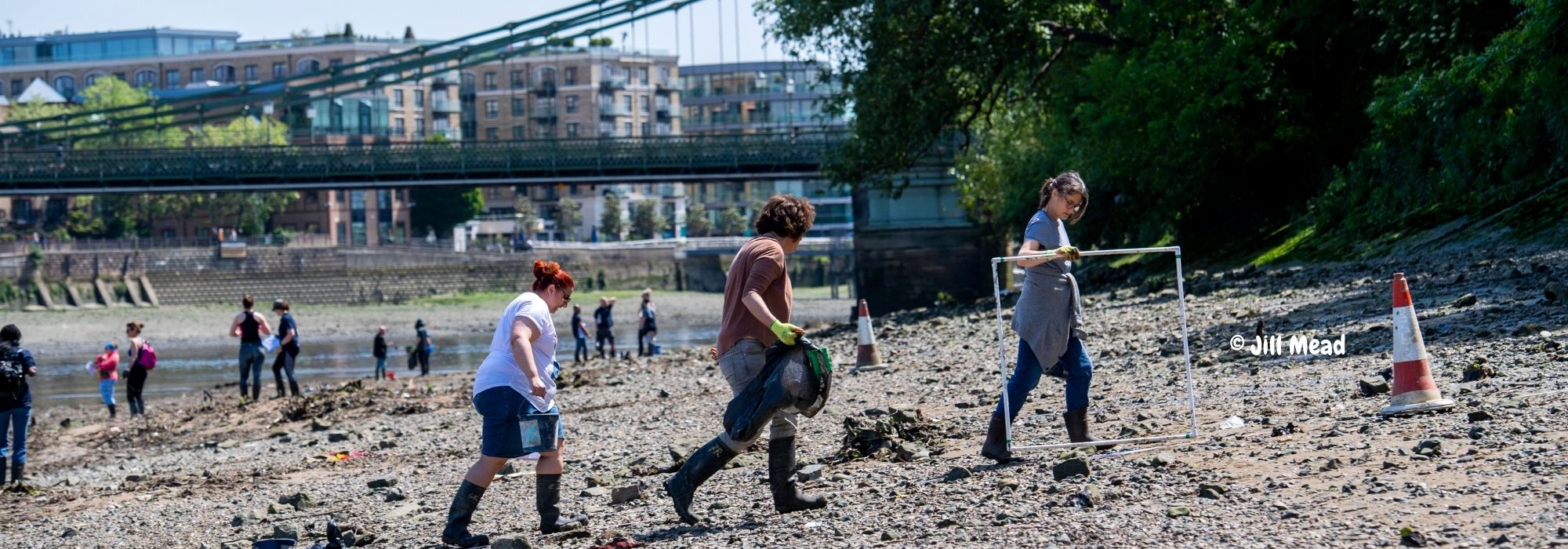Thames21 urges Government to prioritise ban on plastic in wet wipes to protect River Thames

Environmental charity Thames21 is calling on government to take immediate steps to ban plastic in wet wipes in order to help tackle this pollution ending up in the River Thames and in the wider natural environment – as it announces the results of the latest Big Wet Wipe Count.
Wet wipes enter the river through sewage pipes after they are flushed down toilets. Most contain plastic in them and because of this they can cause blockages which back up sewage that spills into the River Thames.
Thames21 and the Port of London’s research, shows that there are so many wet wipes building up in the Thames that they are changing the shape of the riverbed. When they end up on the foreshore, they break down into microplastic and damage aquatic life and the Thames’ ecosystem.
The government recently conducted a consultation on single-use plastics, including the issue of banning plastic in wet wipes. The government is currently reviewing the results of this consultation and is expected to produce more information on this document in the next few weeks.
Thames21 is calling for a ban on the sale of all wet wipes containing plastic. The charity is also urging regulation requiring clear labelling of how to dispose of wet wipes to avoid consumer confusion, which it stated in its response to the government’s consultation. If plastic in wet wipes are banned this will help to reduce this sewage-based pollution ending up in the River Thames and reduce microplastics in the river system.
Thames21’s citizen scientists found almost 2,000 wet wipes in the 60m2 surveyed next to Hammersmith bridge in Barnes recently, a density of 33/m2. 10 transects were laid out 25m apart running from the main foreshore wall in down to the River Thames covering a 250m strip of foreshore. The transects were geolocated precisely by experts from the PLA. Citizen scientists were given specific areas to monitor to survey the litter within their allocated transects.
The data will be added to bathymetric survey data held by the PLA which shows the change in mound height overtime allowing Thames21 and the PLA to assess whether the problem is getting better or worse and if the new Tideway Tunnel (due to open in spring 2024) improves the situation.
Last year, volunteers for the charity picked up more than 27,000 wipes over the space of two days at a separate site next to Battersea Bridge.
Thames21 has been documenting the types of plastic litter washed up on foreshores along London’s iconic river over the past seven years.
In just under five years, one mound grew by 1.4m in height and covered the area of two tennis courts, data from Tideway and the PLA shows.
At these hotspots, wet wipes are found in densities of between 50 and 200 per square metre. However, recent surveys by Thames21 suggest the issue is more widespread, with other sites apart from known hotspots needing further investigation.
Debbie Leach, CEO at Thames21, said: “Our volunteers record and clear away mountains of wet wipes every year, as we’ve seen at this year’s Big Wet Wipe Count. These modern pollutants are harmful for wildlife and people. As people use the River Thames for leisure activities there is a danger that these polluted mounds could affect their health. We are urgently calling on the Government to work faster and do more to end this form of sewage-based pollution that is having a devastating impact on the River Thames and ban plastic in wet wipes.”
About Thames21
Thames21 connects people with rivers by putting healthy rivers back at the heart of everyday life. We improve and restore rivers, educate and empower the community and campaign for positive change for the good of people and the environment.
www.thames21.org.uk | Registered Charity No. 1103997
Media Contact
Liz Gyekye
Communications manager
07711 701 696
020 7248 7171
